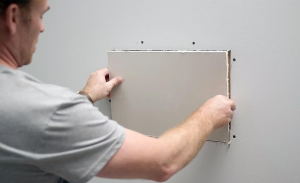Search engines provide a large and highly targeted source of traffic for businesses of all sizes. By following a few basic SEO best practices, you can maximize your site’s visibility and drive more customers to your business.
The key to success is creating content that matches search engine and human intent. This includes addressing questions and covering topics that people are searching for online. Click the https://www.rankboss.com/ to learn more.

Creating SEO-friendly content is an important part of a successful marketing strategy. This process involves optimizing content with relevant keywords, which increases visibility on search engine result pages and drives organic traffic to a website. It also includes analyzing performance and using data to improve future efforts.
The first step in the SEO content creation process is to conduct keyword research. This will help you determine which keywords have the highest potential for traffic growth, and will guide your writing process. Then, you can create a content outline that will help you stay on track as you write. This outline will include a keyword theme, an outline of the main topics, and an estimate of how long each section should be.
When creating SEO-friendly content, it is important to keep your audience in mind. This means avoiding overly-optimized text that is hard to read. Instead, try to write articles that are useful and relevant to your audience’s needs. The goal is to produce high-quality content that will engage your audience and encourage them to visit your site again.
Another key aspect of content creation is personalization. People are more likely to read and share articles that are tailored to their interests, needs and values. In addition, personalized content can also increase brand awareness by allowing people to familiarize themselves with your products and services.
One of the best ways to increase your SEO content creation is to incorporate video into your marketing strategies. This form of media is rapidly gaining popularity and can be an effective way to reach your audience. Video can be used for a variety of purposes, including product promotion and educational content.
Despite the fact that the SEO industry is constantly changing, there are still some common best practices for creating quality content. These best practices should be applied when creating all types of content, from blog posts to social media updates. Having a clear understanding of these best practices will allow you to develop and implement an effective content marketing strategy. By following these tips, you can create a more effective content marketing strategy and achieve better results for your business.
Keyword research
Keyword research is an essential component of SEO (search engine optimization) and SEM (search engine marketing). It involves identifying the words or phrases that potential customers use when searching for products, services, or content. It also helps you create a strategy for ranking your website or individual pages based on these keywords. Effective keyword research will allow you to reach a wider audience and increase your sales.
The goal of keyword research is to find relevant search terms that are not too competitive, match your brand and product, and resonate with your target audience. It is not a one-time activity, but an ongoing process that requires periodic reevaluation to stay up to date with search trends. You can use a number of tools to help you find relevant keywords, including Google’s Keyword Planner, Answer the Public, and Yoast SEO. These tools can help you find a list of related keywords and phrases, as well as search volume estimates.
Another important part of keyword research is understanding buyer intent. This means putting yourself in the shoes of your potential customer and understanding what they want from your site. For example, if you’re writing an article to rank for the keyword “phone covers,” you need to understand that your potential audience is in the buying stage and looking for information about these products.
The best way to do this is by visiting your competitor’s websites and analyzing the keywords that they use. This can help you find keywords that you haven’t thought of, as well as provide inspiration for new content. In addition, you can use social media to see what people are saying about your brand and products. This can also help you come up with new keywords. It’s important to note that not all keywords will be successful. Some may be too competitive or have low search volume, while others may not be able to attract enough visitors to your website. If you don’t have a plan to handle these situations, they can be disastrous for your business. The key is to be flexible and adapt to change.
On-page optimization
On-page optimization is everything you do on your website and individual web pages to make them more visible to search engines and attractive to your ideal users. It includes including keywords your audience is likely to search for in your page title, meta description, headings and subheadings, body content, and URLs. It also involves using responsive images and creating internal links. On-page SEO is different from off-page SEO, which focuses on external factors such as backlinks.
Performing on-page SEO is the first step to ranking higher in organic search. On-page SEO focuses on what you can control, like the quality of your content and your website’s technical structure. It also includes keyword research and ensuring that your content is relevant to your target audience. To do this, you need to have a clear understanding of your target audience’s needs and questions.
The most important on-page SEO factor is creating valuable content that addresses your audience’s search intent. This is especially true as Google’s Rankbrain algorithm favors helpful content that matches user intent. You can perform keyword research to determine what your target audience is searching for and then create informative, engaging, and unique content that answers those queries.
On-page SEO also includes optimising your title tags and URLs to improve pre-click conversion. The title tag is one of the most important elements of a webpage because it helps search engines understand what the page is about and can influence click-through rates. It is recommended to limit your title tags to 50-60 characters, and to place the most important keyword at the beginning. You can view the title tag in the source code of a webpage by right-clicking and selecting “view page source.”
Meta descriptions are another on-page SEO factor that can influence click-through rates. They are used to display a brief summary of the content on a SERP, and can contain targeted keywords. Having a compelling meta description can encourage searchers to click on your listing, so it is important to include targeted keywords in your meta descriptions.
Alt text, or alternative text, is a light-weight on-page SEO signal that can help search engines understand the context of an image. It is recommended to include targeted keywords in your alt text, and to avoid including decorative imagery, such as horizontal line breaks or a magnifying glass icon.
Link building
Link building is one of the most important factors in search engine optimization. It is an off-page activity that involves gaining backlinks to your website from other websites. These links act as votes for your page in search engines. If you want to rank higher in search engines, you need to have a lot of high-quality links. This is why it is so important to build these links correctly. There are a few different ways to do this, but they all require hard work and time.
The first step is to create a link-worthy piece of content. This could be anything from a full-length beginners guide to your industry to a video that shows how your product works. It should be something that would really get people excited, and that other websites will want to link to.
You should also try to find creative ways to promote this piece of content. This can be done through social media, but you can also ask other sites to share it. Getting high-equity links is the best way to increase your search engine ranking, and these can lead to more traffic and sales.
To achieve high-equity links, you need to focus on creating great content and promoting it. The key is to create something that people will link to naturally, not because of a marketing campaign. People will only link to your content if it is in their audience’s interest, so make sure that you provide valuable information. You can also try offering incentives, such as free samples of your product, to convince them to link to you.
Another way to achieve high-equity links is to build them from websites with a high domain authority. This will give your site more credibility. For example, if you get a link from the New York Times, it will have more value than a link from a small blog. You can also use HARO and journalist requests to get these types of links.
In the past, many SEOs have focused only on content and on-page optimization without paying attention to link building. However, recent changes in Google’s algorithms have made link building more important than ever before. In addition, it is now more difficult to rank in competitive industries without a strong link building strategy. However, if you follow the golden rules of link building, you can still make a difference in your organic search results.








